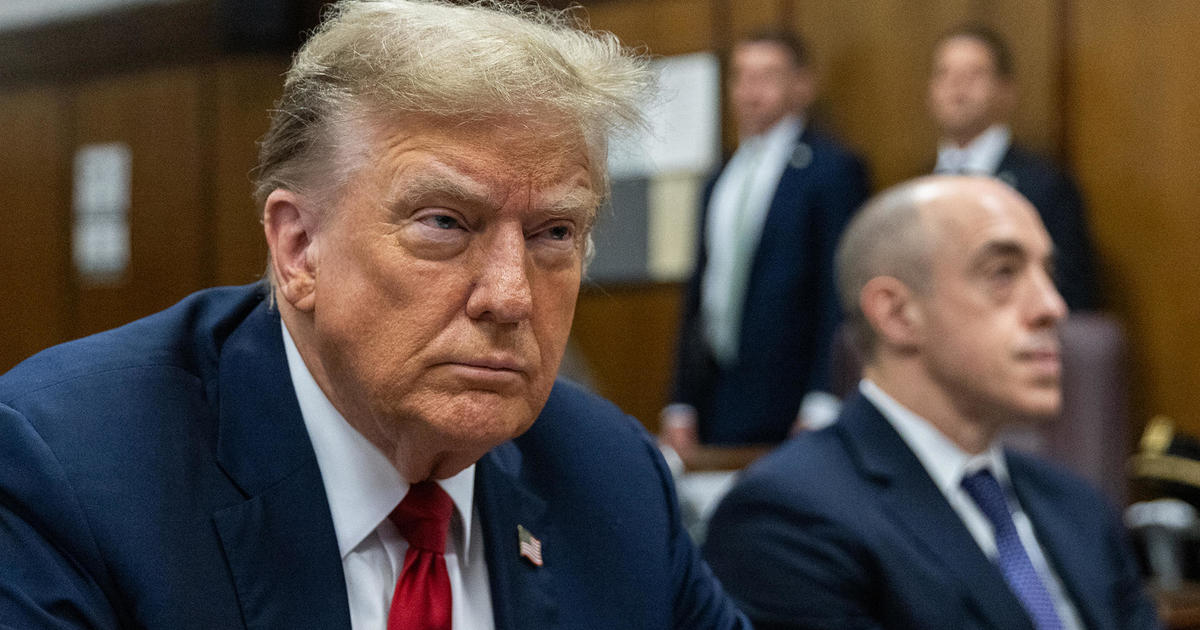A pause in the U.S.-China trade war is a long way from a real deal
- Though U.S. tariffs on $300 billion in Chinese goods that would hit consumers hard are on pause, it's far from certain a truce will hold.
- Trade experts remain skeptical the U.S. and China will reach a trade agreement any time soon.
- Clashes over technology restrictions and alleged theft remain big sticking points, particularly regarding just how the U.S. will ease restrictions on Chinese telecom Huawei.
President Donald Trump and Chinese President Xi Jinping over the weekend hit the pause button on their trade war and agreed to resume discussions. That means U.S. companies and consumers bracing to pay more for everything from mobile phones to clothing to fireworks are getting a reprieve on footing the bill for $300 billion in tariffs on Chinese goods threatened by Mr. Trump. For now.
But a pause does not a trade agreement make, and talks have collapsed before, most recently in May. Indeed, many trade experts remain skeptical a long-term agreement will be reached anytime soon.
Here's a look at what happened and what's next.
Were new talks expected?
Heading into the Trump-Xi meeting this weekend at the G20 summit in Japan, trade experts gave the biggest odds to a pause in the escalation of tariffs and other tit-for-tat moves by both countries, rather than an outright agreement. And sure enough, Mr. Trump said the U.S. would put off moving forward on $300 billion in planned tariffs on imported Chinese goods.
Some observers, including the Washington Post's Heather Long, noted China got nearly all of what it wanted from its meeting with Mr. Trump. In addition to the tariffs, he agreed to ease some restrictions on Chinese telecom Huawei from doing business with U.S. tech companies, and China agreed to buy more farm products.
What's the timetable for talks?
The sides didn't set a schedule for negotiations. "We have no assurances, and again, the president himself said several times, we want quality talks, there's no timeline here. The issue is quality, not speed," White House economic adviser Larry Kudlow told Margaret Brennan on CBS' "Face the Nation" this Sunday.
Morgan Stanley economists on Sunday said the pause doesn't do enough to quash signs of a slowing global economy and shore up corporate confidence, in part because there's no "clear path" to an agreement. "As things stand, we lack clarity on whether real progress was achieved on the sticking points that caused talks to break down in the first place," Morgan Stanley Chief Economist Chetan Ahya said in a note.
What about existing tariffs?
The last time Mr. Trump and Xi met -- in early December at a G20 gathering in Buenos Aires, Argentina -- they also reached a cease-fire that injected new life into the talks. But the momentum didn't last, and the discussions collapsed in May. Mr. Trump then raised the 10% tariffs he had imposed on $200 billion in Chinese goods to 25%.
Those tariffs remain and will cost U.S. households $106 billion a year, or $831 for the average family, New York Fed researchers found. China this weekend also left its counter-tariffs in place.
Contrary to what Mr. Trump has claimed, U.S. companies -- not exporting countries -- pay tariffs on goods and services imported from China and elsewhere. While some firms can absorb the higher costs, most consumer and tech companies opt to push at least some of the increased expense onto consumers. That means higher prices.
"Pulling back from the brink of further tariff escalation is a good sign for retailers and their customers, and we look forward to continued progress in the talks with China so that further tariffs can be avoided and existing ones lifted," the National Retail Federation's David French said in a press release this weekend.
What might happen next?
The basic fight between the two countries hasn't changed, Raymond James analyst Ed Mills pointed out in a note to investors. "Tariff escalations and tech restrictions still remain extremely likely over the coming weeks/months," he wrote, "but that threat will likely be discounted (potentially significantly) by the market until signs emerge of Trump seeking to restart the fight."
The latest truce might mean no new tariffs until the end of 2019 "at least" if talks stall, Height Securities analyst Clayton Allen wrote in a note. He forecast a "growing possibility that the larger talks with China continue with no real headway until the 2020 election."
What's the deal with Huawei?
China and the U.S. are sparring over the Trump administration's allegations that Beijing steals technology and coerces foreign companies into handing over trade secrets. China denies this.
The U.S. has also tried to rally other nations to not use Chinese telecom firm Huawei's gear in their upcoming 5G systems, branding the company a national security threat. The White House also barred Huawei from buying American technology without U.S. government approval.
Mr. Trump said Saturday he would allow U.S. companies to sell their products to Huawei, but he wasn't yet willing to remove the company from a trade blacklist. The president's easing of pressure on Hauwei has already drawn pushback from some in Congress.
"If President Trump has in fact bargained away the recent restrictions on #Huawei, then we will have to get those restrictions put back in place through legislation," Senator Marco Rubio, R-Florida, tweeted on Saturday. Economic adviser Kudlow told "Face the Nation" that Huawei is still subject to restrictions regarding doing business with U.S. firms and gave few details on how that might change.
"There was no explanation of how this would work, other than a throwaway line that additional work must be done," Height Securities' Allen wrote. The White House might grant Huawei a 90-day temporary license to do business with some U.S. firms for some products, Allen speculated.
What about the U.S. growth streak?
The U.S. economy has now grown for 121 consecutive months, making this the country's longest expansion ever. Yet economists remain concerned that a recession is on the horizon. One of the biggest downside factors remains the Trump administration's protectionist policies and the trade war with China, paused or not.
Though the U.S. economy is still growing, a key manufacturing index Monday showed a slowdown in that growth in June. Uncertain trade conditions may be one reason some companies are holding back on ordering more goods, analysts at Oxford Economics wrote in a note today. "Manufacturing activity is undeniably cooling amid dissipating fiscal stimulus, escalated trade tensions and sluggish global growth," the analysts wrote, noting that orders, production and employment "all slowed."



